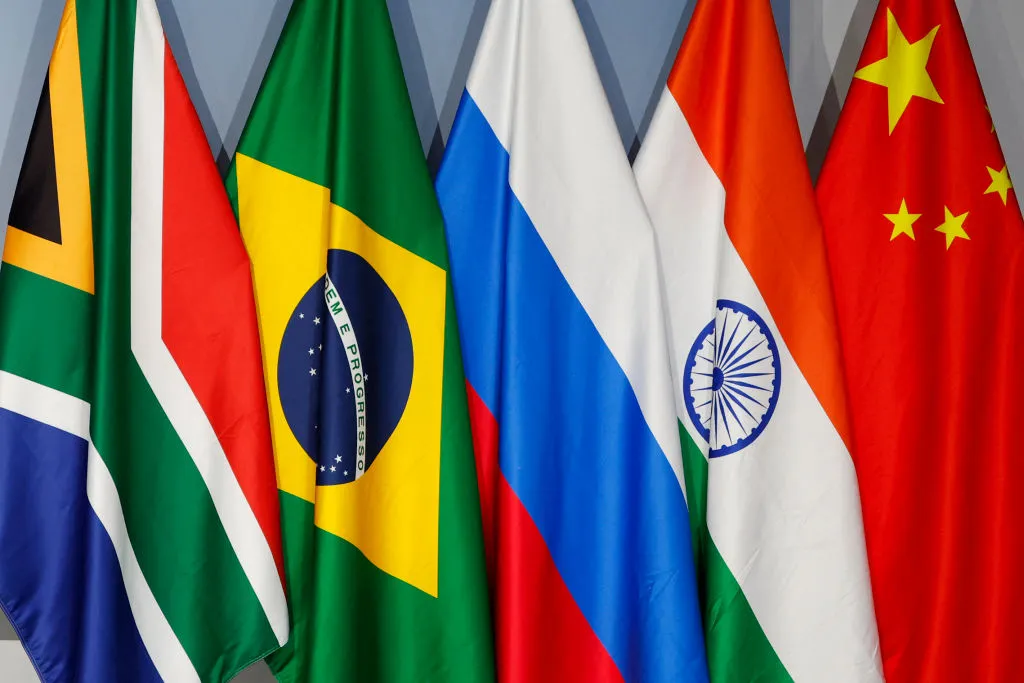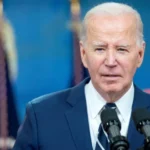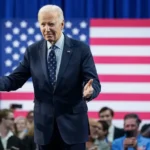
Published March 17, 2024
Americans are used to exercising influence through international entities such as NATO, the World Trade Organization or the World Bank. Each of these groups was set up with American leadership or at its instigation; all have been used to advance Washington’s vision of global liberal-democratic capitalism. No comparable international organization or collection of nations has been influential since the Soviet Union’s collapse.
That may be changing. The so-called BRICS alliance (its founding countries were Brazil, Russia, India, China and South Africa) recently added new members Iran, Ethiopia, Egypt and the United Arab Emirates. That, combined with nascent efforts to start its own alternative to global financial institutions such as the International Monetary Fund, led some to suspect that it could become a focal point for enemies of the West.
That’s certainly a risk if America and its allies don’t adapt to the new competition. If they do, BRICS could turn out to be an unintentionally good development for the increasingly hard-pressed West.
BRICS was launched in 2009 as a means whereby its founding nations could coordinate their financial relations with the West. The initial aim was to solicit foreign direct investment and apply their combined weight when necessary to influence Western-led institutions and orders. Before Xi Jinping’s ascension to power and Russia’s annexation of Crimea, BRICS was largely viewed as a non-threatening discussion group.
That has changed as Russia and China have become increasingly and openly hostile to Western global dominance. In 2014 BRICS established its own bank and global financial arm to compete with the World Bank and IMF. Brazilian president Luiz Inácio Lula da Silva recently called for the BRICS nations to establish a common currency to dethrone the US dollar as the world’s reserve currency. None of them — original or new — have joined Western sanctions of Russia over its 2022 invasion of Ukraine.
BRICS nations’ economic power is one reason why the collaboration is viewed as a potential threat. The nine member nations possess a combined GDP, measured at purchasing power parity (PPP), of roughly $57 trillion, or about 35 percent of global GDP. That’s not much less than the $68 trillion that the US, European Union and their allies in the G20 produce.
It’s clear why this could pose a threat to American and Western interests. The spread of liberal-democratic capitalism over the past thirty years was a direct consequence of America’s victory in the Cold War. Developing nations saw they had no alternative to Western norms and institutions if they wanted to grow economically. As a result, countries like India, which had tilted towards the USSR during the Cold War and been a leading member of the Non-Aligned Nations Group, dropped their barriers to investment. Provided a workable alternative, many nations might prefer to court both sides and work their way out of what they might view as the Western grasp.
Saudi Arabia is perhaps the leading current example of a nation trying this gambit. Once a staunch US ally, it is considering an invitation to join BRICS. It has been growing closer to China too, and it shocked many when it re-established diplomatic relations last year with its longtime enemy Iran. It is also, nonetheless, seeking a US security guarantee that would commit America to come to its aid if attacked, and is reportedly working with US officials toward a peace agreement with Israel. For nations like this, BRICS provides a counterweight to the West that potentially increases smaller nations’ bargaining power.
This is both a risk and an opportunity for America and the West. The risk is obvious if BRICS becomes a way of tying growing nations in the developing world closely to the autocratic axis that is developing between China, Russia and Iran. The opportunity comes from the fact that most nations know they could benefit more from closer ties to the richer, more technologically advanced West. Seizing that hope is the key to how the West should respond.
Doing that well means the West must know what it wants. As much as possible, governments and the international entities they control and influence should operate from the same playbook. That requires clarity and focus.
The West’s overriding aim should be to prevent a significant accumulation of economic power in an alliance dominated by China. The communist country shows little inclination to adopt Western norms and values, and increasingly presents its techno-totalitarianism as a desirable alternative. Letting China, as presently led and constituted, set global rules would be a potential death knell for liberal democracy everywhere.
That in turn means Western policy toward the nations that could be tempted to ally with China through BRICS must provide what such nations want most. That, for almost all of them, is some combination of wealth and influence. National leaders will ally with powers that can give them those things and shun those who won’t.
This means Western policy should be guided by the desire to increase Western economic investment and trade among them. This is not in itself a dramatic change from the post-1991 consensus, but it should come with a few alterations that reflect the changed incentives these nations now face.
Western investment should be channeled to nations that adopt clear and con- sistent practices regarding property rights and the rule of law. Propping up corrupt oligarchies or state-owned firms may provide a short-term benefit as long as the big men remain bought or in power. Recent coups in Western Africa, however, show that autocrats and even weak elected leaders can be removed overnight. Only a broad-based policy that makes friends and distributes wealth throughout a developing nation’s population can yield lasting pro-Western influence.
This should be coupled with policies to encourage and even subsidize the diffusion of Western ideas in a nation. Cultural exchanges are part of this, but more important is helping to build education systems modeled on Western norms. This can include helping to develop curricula and teaching methods in the public system as well as helping the vast informal, private education systems that pervade many developing countries.
It also means encouraging the most ambitious and brightest citizens to study in Western universities and work in Western firms. China, with its state-controlled and ethnocentric political economy, cannot hope to compete with the West on this score — which China knows only too well, sending as it does thousands of students to study in Europe and the US every year.
This focus also means showing restraint in arenas where there remains sharp disagreement with developing country institutions or mores. Secular Western values regarding sexuality and religion, for example, often offend and antagonize people outside the West. Western leaders should recall that attitudes toward these matters took decades, if not centuries, to change. They should not seek to use Western economic and political power to jump-start rapid changes elsewhere, especially when those countries can turn to China and BRICS to get at least some of what they want.
Climate-change activism also has to be sacrificed in pursuit of the broader, higher goal. Developing countries are already pushing back against aggressive Western insistence that they stop or cut back on the use and production of fossil fuels. Developing countries know that they need cheap energy to build an industrial future, and that means in most cases using coal, oil or natural gas to fuel their economies. The past decade has shown that even concentrated pressure can make only the smallest adjustments in a developing nation’s policies. Driving them away is exactly the sort of thing that can turn BRICS into an active anti-Western cabal.
Pushing the adoption of liberal democracy also needs to be carefully handled in coming years. Certainly, that is a core Western value, and our steady propagation of that ideal has made great strides in spreading political freedom worldwide. Most nations today are either democratic or imperfect democracies rather than clear autocracies. The West should make clear that there should be no backsliding on democracy where nations have already sought to adopt it.
That does not mean that Western relations with developing nations must inevitably be predicated on their adopting liberal democracy. Attempting to impose an alien system of government on a country that does not have a large enough body of people who want it, as was done in Iraq and Afghanistan, is ultimately futile. Developing deep economic ties, coupled with diffusion of Western ideas, can reform a country from within so long as it is not inherently anti-Western. South Korea, Spain and Mexico offer examples of how developing nations enmeshed in the West can move on their own to adopt democracy, even if their initial attempts are imperfect.
Over time, this will also mean according developing nations more influence within key multinational organizations currently dominated by the West. No one likes to be treated as an inferior, and resentment grows when one is proud of the growth in wealth and power one has achieved. Nations are no different than people, and a wealthier India or Indonesia will want to be treated differently than they have traditionally been.
That alone will require a dramatic change in Western foreign policy. The surprise that many Western elites have expressed over most of the developing world’s refusal to sanction Russia suggests that they expected them to simply do as they were told. Overcoming this neo-colonial mindset is crucial to convincing developing nations to throw their lot in with the West, or at least to keep them from joining an anti-Western BRICS.
The battle is not yet lost. China remains weaker than the United States even as its startling rise has made it a global competitor. Russia and Iran are not global powers, even though they punch above their weight and have influence beyond their borders. Developing nations know they have leverage with the West, but most are not so filled with loathing of it that they simply wish to fully abandon it.
There are many forces within even BRICS countries that would prefer their countries adopt a more pro-Western affiliation. The leftist Perónist government of Argentina had accepted an invitation to join BRICS last year, but its newly elected libertarian president, Javier Milei, has withdrawn that. Brazil is firmly democratic, and the conservative opposition led by former president Jair Bolsonaro is also much more inclined to keep BRICS a loose association. Even South Africa’s primary opposition party, the Democratic Alliance, is leery of BRICS’s seeming movement away from engagement with the West. Cultivating ties with pro-Western elements within countries, even when they do not possess political power, is another way for the West to adapt to the challenge.
The possibility that BRICS may plausibly become a serious competitor to Western-led international entities should be a wake-up call to Western, and especially American, leaders. Globalization inevitably means the formerly undeveloped world will grow in power and seek commensurate influence. The only question before the West is whether to reform its own policies to allow these nations to achieve this within its embrace or to calcify and force them away. If BRICS is the spur that pushes the West to reform, its rise may prove to be just the warning signal the West needs.
Henry Olsen, a senior fellow at the Ethics and Public Policy Center, studies and provides commentary on American politics. His work focuses on how America’s political order is being upended by populist challenges, from the left and the right. He also studies populism’s impact in other democracies in the developed world.











